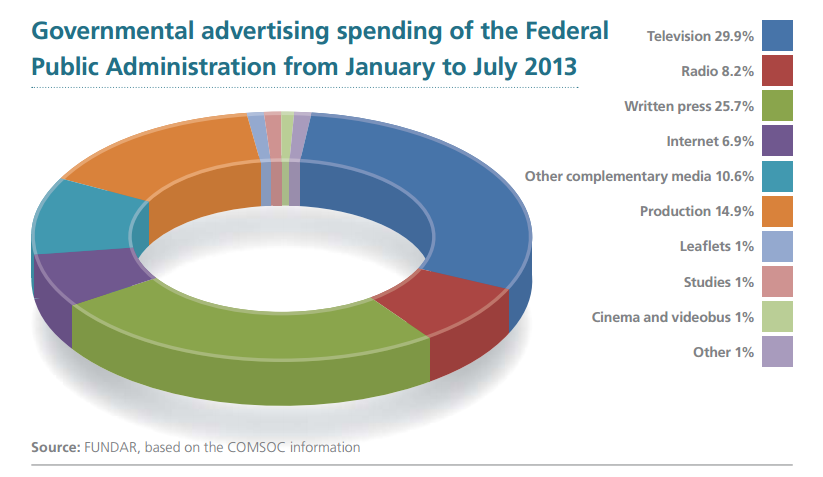CIMA Releases Next Report in Series Partnership with WAN-IFRA
When international media watchers think about Mexico’s press, the first image that often comes to mind is the tragedy of journalists getting killed or censoring themselves in an effort to avoid that fate.
But Mexico’s news media has another problem with censorship: indirect or “soft” censorship–the use by governments of their financial power to apply pressure on news media.
In cooperation with CIMA and with support from the Open Society Foundations, the World Association of Newspapers and News Publishers (WAN-IFRA) has launched a series of reports examining the problem of soft censorship in several countries. The first two, looking at Serbia and Hungary, were published in January.
The third report in the series, Buying Compliance: Governmental Advertising and Soft Censorship in Mexico, released today, highlights a rich menu of the problems:
- Allocation of massive governmental advertising in Mexico on partisan and political bases powerfully shapes media content. Despite laws and recommendations that demand or encourage regulation, scant progress has been made to establish clear allocation criteria.
- Many media outlets slant their coverage to obtain more advantageous advertising contracts. Some media owners are active partners in this.
- Allocation of broadcast spectrum is another form of soft censorship mechanism, used particularly to restrict community broadcasting.
- A profound lack of transparency hinders understanding and reform of government advertising. Efforts to make federal advertising spending public have failed, and more than half of the states also withhold details of their advertising allocations.
- Regulation of government advertising exists only regarding electoral campaigns, despite constitutional obligations and presidential promises.
- Arbitrary use of government advertising further concentrates media ownership and creates a false appearance of pluralism. It sustains so-called “pasquines”–media outlets, especially in print and on the Internet, that survive solely on government funds and have minimal audience.
- The billions of pesos in government advertising that promote individual politicians or political party agendas are effectively subsidies for favored media outlets.
- Corrupt practices persist in most of Mexico, including offering typically poorly-paid journalists bribes–known colloquially as “chayote”–to influence their reporting, as well as other payments allegedly made to editors and owners.
In the aggregate, these findings present a dismal outlook for media in Mexico. The report offers a number of recommendations for government entities and media organizations in Mexico that deserve consideration and support by media development groups.


Comments (0)